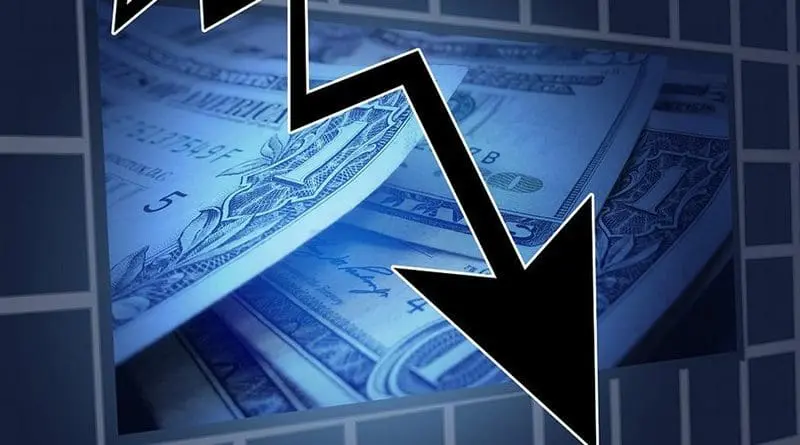US, European Stocks Plunge On Recession Worries
U.S. stocks took a drubbing Wednesday after key economic indicators signaled the possibility of a global recession in the next year.
The Dow Jones Industrial Average plummeted 800 points, a 3% drop. The Standard and Poors 500 and Nasdaq were also off 3%.
Major European indexes also fell sharply Wednesday.
Analysts pointed to weak German and Chinese economic data as warning signs of a possible world economic slowdown, but most importantly, to a so-called yield curve inversion for interest rates on two- and 10-year U.S. Treasury notes.
Typically, interest rates on government bonds held for a long time are higher than those held for shorter periods.
But the reverse was in effect Wednesday and the analysts see it as a sign that investors have worries about the immediate state of the U.S. economy.
It was the first time such an interest rate inversion had occurred since 2007, at the start of the U.S. recession that was the country’s worst economic downturn since the Great Depression of the 1930s.
Millions of U.S. workers lost their jobs in the recession a decade ago, as well as their homes, when they no longer had enough money to make monthly home loan payments.
The bond interest rate inversion has preceded the last nine U.S. recessions over the last six decades, although the barometer is not a perfect indicator. No recession occurred in 1966, even though there had been an interest rate inversion.
Meanwhile, China said its factory production was the weakest in 17 years, while Germany, Europe’s most powerful economic engine, said its economic output shrank in the April-to-June period by one-tenth of a percentage point.
The negative economic indicators could push central banks around the world to cut their key interest rates, following U.S. Federal Reserve policymakers who last month trimmed the key U.S. benchmark rate by a quarter of a percentage point.
U.S. President Donald Trump blames Wednesday’s economic news on the fed, tweeting “The Fed is holding us back…Raised (interest rates) too much & too fast. Now too slow to cut.”
Trump, who has touted a robust U.S. economy as a key reason voters should re-elect him in 2020, has frequently criticized the independent Federal Reserve Board for not cutting interest rates fast enough.

